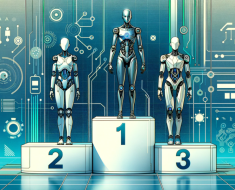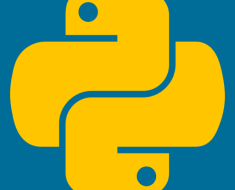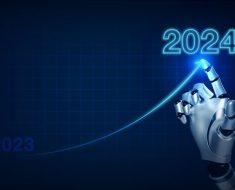- Mistral’s CEO Arthur Mensch said the obsession with creating general AI is about “creating God.”
- The AI CEO doesn’t believe Elon Musk and Sam Altman’s predictions that AI will surpass human intelligence.
- Mensch warns of tech giants imposing AI standards that conflict with global culture and values.
Mistral’s founder and CEO Arthur Mensch doesn’t believe in god — and therefore, he doesn’t believe in artificial general intelligence.
Artificial general intelligence, also referred to as AGI, is a level of AI that will outperform humans. It has yet to be reached, but it’s a buzzy topic of conversation as leaders grapple with the possibility that AI may become more intelligent than humans — and soon.
Leaders have expressed concerns about the potential negative outcomes that may arise from AGI, like jobs being replaced by AI. Or worse, humans going extinct.
The 31-year-old CEO recently gained publicity as the AI company he founded with two college friends in Paris has emerged as one of the most promising tech companies in the world — and the hottest in Europe.
But he separated himself from other leading tech CEOs in an interview with The New York Times. Mensch said he felt uncomfortable with Silicon Valley’s religious fascination with general AI.
“The whole AGI. rhetoric is about creating God,” Mistral said in the interview. “I don’t believe in God. I’m a strong atheist. So I don’t believe in AGI.”
He was referring to comments made by tech CEOs like Elon Musk and Sam Altman saying AI will become smarter than humans, which could lead to negative consequences for humanity.
Other figures in tech are going even further and creating a new religion around AI.
Anthony Levandowski, a pioneer in driverless cars whom Donald Trump pardoned for stealing trade secrets, announced he was bringing his AI church back in an episode of Bloomberg’s AI IRL podcast in November 2023.
Levandowski, now the CEO of Pollen Mobile, founded his “Way of the Future” church in 2015 while he worked as an engineer on Google’s Waymo.
The church was shut down a few years later, but Levandowski’s new church already has “a couple thousand people” who want to build a “spiritual connection” with AI, he said in the interview.
“Here we’re actually creating things that can see everything, be everywhere, know everything,” Levandowski said in the interview. “And maybe help us and guide us in a way that normally you would call God.”
The church is a mechanism for people to understand and participate in how technology can improve us, Levandowski said in the interview.
A more imminent threat than AGI, Mensch said, is the one tech giants pose to cultures around the globe.
“These models are producing content and shaping our cultural understanding of the world,” Mr. Mensch said. “And as it turns out, the values of France and the values of the United States differ in subtle but important ways.”
Mensch echoes a widespread concern from global leaders that tech giants like Microsoft and Google could control the AI industry. This dominance could lead to global AI standards that clash with the culture and values of other nations.
The European Union enacted the Artificial Intelligence Act in March. It’s the first major attempt to protect people from the risks of AI. Other countries such as China have also enacted smaller rules around AI use.
Mensch also said in the interview that vocalized concerns about open-source models are attempts of Big Tech firms to push for laws that would eliminate competition.





